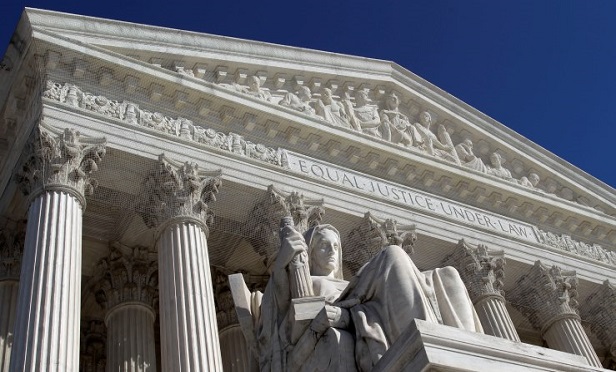
 U.S. Supreme Court (Photo: J. Scott Applewhite/AP)
U.S. Supreme Court (Photo: J. Scott Applewhite/AP)
The U.S. Supreme Court on Monday agreed once again to determine the fate of the embattled Affordable Care Act in the wake of arguments from the Trump administration and a group of Republican-led states that the entire law should be thrown out.
The justices will hear arguments in a case brought by a coalition of Democratic-led states.
Those states, along with the U.S. House, defended the law's constitutionality in the lower appellate court against the effort by the administration and the Republican states to dismantle the law, including such popular provisions as coverage for individuals with pre-existing conditions.
The court has not said when it will hear arguments, but most observers say they expect the court to take up the caase next term.
Texas v. Azar, Texas v. California and California v. Texas
In the high court, the Democratic coalition, led by California, is vying to overturn a December ruling, on Texas et al. v. Azar et al., by the 5th U.S. Circuit Court of Appeals. A divided panel ruled that the individual mandate to purchase health insurance — which the Supreme Court upheld in 2012 as a constitutional tax — was no longer constitutional because Congress in 2017 zeroed out the tax penalty for failure to have insurance.
The panel decision largely affirmed a ruling in December 2018 by U.S. District Judge Reed O'Connor in Texas. But the appellate panel sent back to O'Connor the question of whether Congress intended other provisions of the law to remain operable. O'Connor had earlier decided that the mandate was so central to the law that the entire law must fall.
The high court petition raises three issues stemming from the 5th Circuit decision: whether the Republican-led states and individual plaintiffs lacked standing to challenge the ACA because they had suffered no injury; whether the individual mandate is constitutional, and whether the mandate can be severed from the rest of the act.
The U.S. House filed a separate petition in which House general counsel Douglas Letter told the justices that the 5th Circuit's decision is destabilizing the insurance market and hospitals' ability to make long-term investments as well as creating uncertainty about coverage for millions of Americans and small business owners and employees. Letter is assisted by Munger, Tolles & Olson partner Donald Verrilli Jr. and Elizabeth Wydra of the Constitutional Accountability Center.



